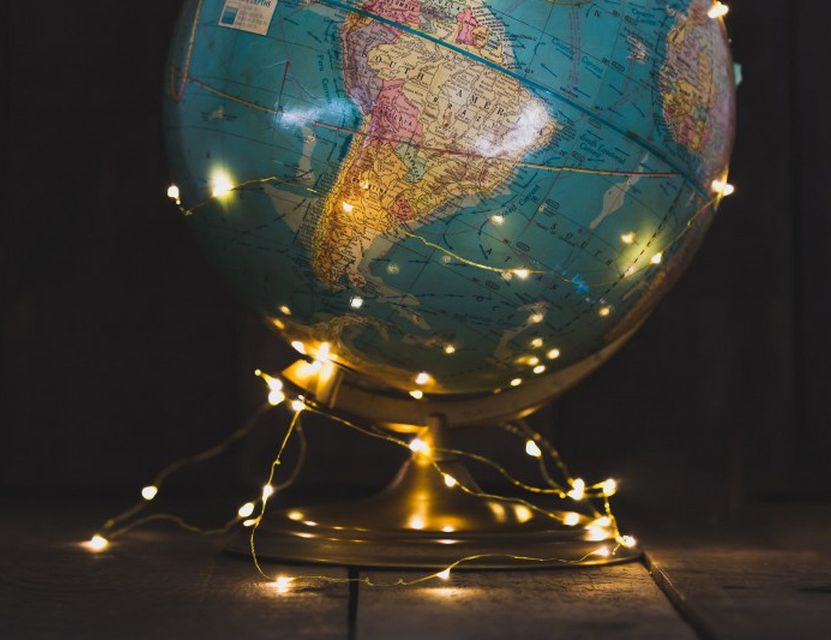Graduiertenkolleg | Writing the Transnational History of Science and Technology
| Veranstaltung des Duitsland Instituut Amsterdam |
|
|---|---|
| Datum: | Freitag 17 September 2021 um 15:00 Uhr bis 18:00 Uhr |
| Ort: | Potgieterzaal, Universiteit van Amsterdam, Singel 421-427, Amsterdam |
| Information: | Voertaal: Engels |
| Zugang: | Gratis. Aanmelden via Mario Daniels: mdaniels@uva.nl |
Het Graduiertenkolleg aan het Duitsland Instituut Amsterdam is een wetenschappelijk programma gericht op jonge onderzoekers. In deze editie staat het thema 'Writing the Transnational History of Science and Technology' centraal. Met gastpreker John Krige, Kranzberg Professor Emeritus aan het Georgia Institute of Technology.
In the last decade, the research field of the History of Science and Technology has increasingly turned to exploring the ways scientific-technological knowledge travels across national borders. It analyzes how these movements deeply influence international relations, global economics and transnational scientific communities.
Historians of transnational science and technology look, for example, at the way international scientific cooperation is conceptualized, organized and translated into practice. Research is done on how knowledge shapes the economic cooperation as well as the intense competition between companies, industries and entire nations. And there is more and more research that shows that science and technology was not just a sideshow of diplomacy but was indeed an integral and often central element of “high” politics in bi- and multilateral international relations.
Historians of science and technology ask ever more often how exactly knowledge is moved across borders. Who moves it – which national institutions, international organizations, multinationals companies, or individuals? What kind of knowledge is being produced by, and shared among, transnational and international actors? What is the relationship between knowledge dissemination and economic globalization? And these historians make also clear that there are many obstacles and barriers to the movement of knowledge. Not everything that is known is being shared. The scale and scope of travel restrictions, export controls or secrecy in the name of national security emphasize that borders still matter and are far from vanishing.
This workshop wants to amplify these research trends and show the immense potential of a decidedly transnational history of science and technology. Five PhD students from Maastricht, Eindhoven and Amsterdam will discuss their newest research – in the form of pre-circulated papers – with one of the most prominent historians in the field, John Krige, Kranzberg Professor Emeritus at the Georgia Institute of Technology. Krige has also recently written a transnational history of knowledge flows: his newest book, Knowledge Regulation and National Security in Postwar America, will be published with University of Chicago Press in 2022.
Program
15.00 Mario Daniels (DIA Amsterdam): Welcome and Introduction
15.10 Michiel Bron (Universiteit Maastricht): 'Uranium geopolitics: an international business perspective on the origins of the infamous uranium cartel'
15.40 Klara Strecker (Technische Universiteit Eindhoven): 'From Africa with love… (and a tremendous ecological footprint) – A sustainability telecoupling lens to study the entangled histories of Kenya and the Netherlands'
16.10 Georgiana Kotsou (Universiteit Maastricht): 'Periodic table manners: Rituals and social activities in international chemical conferences'
Coffee break
16.55 Ginevra Sanvitale (Technische Universiteit Eindhoven): 'That time when the Italian Communist Party wanted to nationalize Honeywell. Emotions, technology and politics in the Mediterranean Cold War'
17.25 Machiel Kleemans (Vossius Center, Universiteit van Amsterdam): 'Dreams of declassification - the early Cold War quest for nuclear knowledge in the Netherlands and Norway'
18.00 End
Information and Registration: Dr. Mario Daniels (DIA), mdaniels@uva.nl

